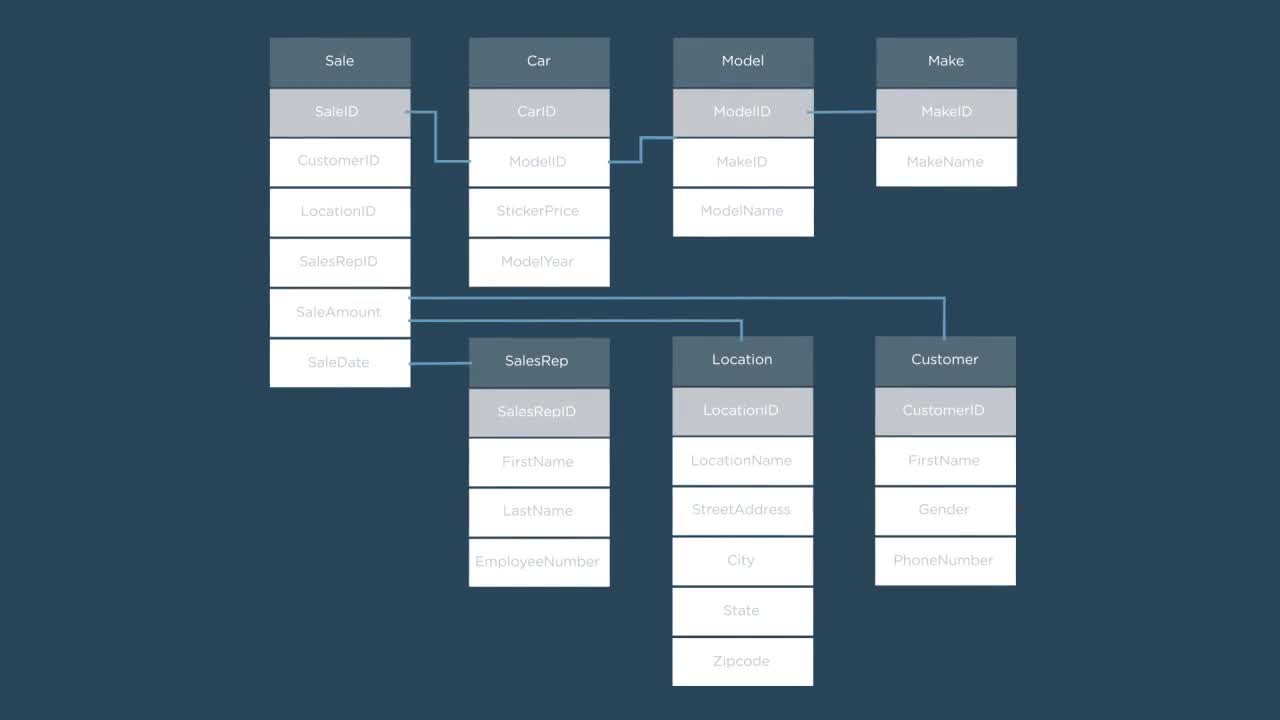
- Databases
- Intermediate
About this Course
Building off of previous SQL courses, this course will begin to introduce the student to more complex database concepts. Students will learn to think about data as sets and subsets and practice achieving desired query results via such operations as inner and outer joins, unions and except. They will also be introduced to the concepts of Set Theory and Database Normalization to aid in understanding good query practices.
What you'll learn
- What is a Relational Database?
- Database Normalization
- Database Keys
- Table Relationships
- Set Operations
Teachers
-
Andrew Chalkley
I'm an alien, I'm a legal alien, I'm an Englishman in Portland. All of my professional life I've worked with computers online. I'm a polyglot programmer and like using the right tools for the job. In my spare time I enjoy spending time with my family and when I get chance, sticking opponents in Halo 4.
-
Kevin Nahm
Ever since grade school, Kevin has always been a fan of math, logic and puzzles. Perhaps that is why his career naturally gravitated to working with SQL and databases. It just clicked for Kevin the first time he was introduced to a database. Kevin also enjoys working with others and sharing what he has learned over the years. He loves when people have that "lightbulb" moment, and is excited to know he has had a hand in turning it on for them.